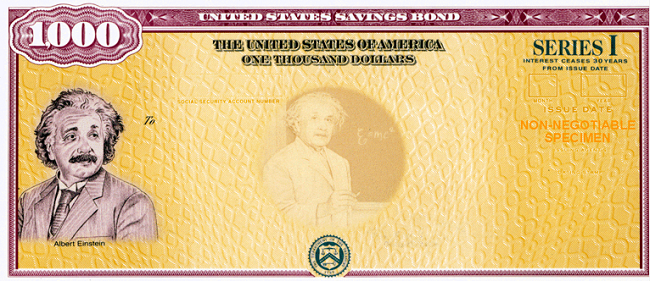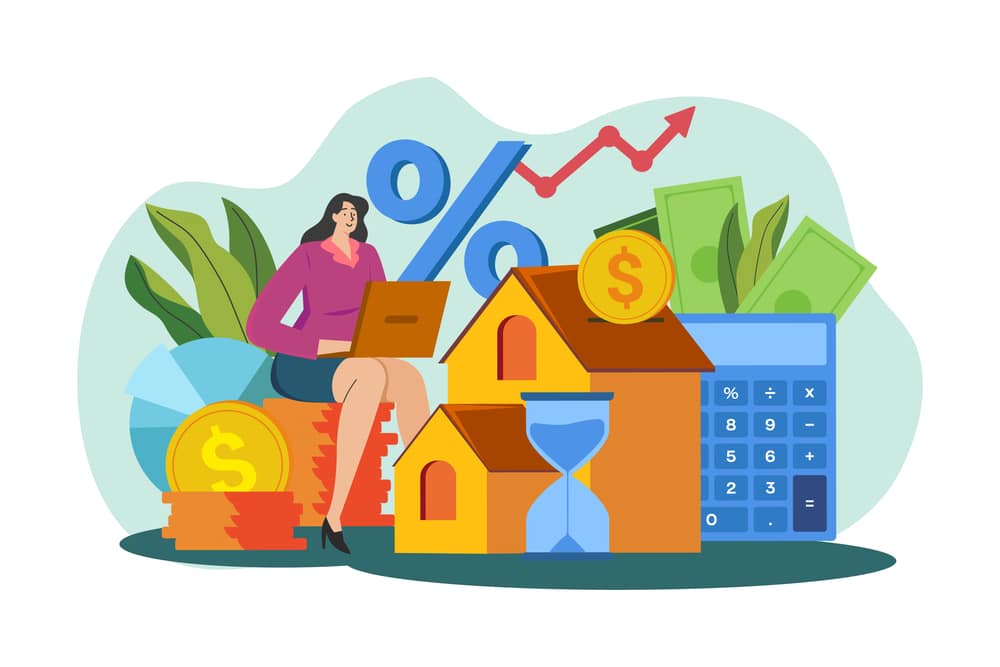Editorial Note: We earn a commission from partner links on Doughroller. Commissions do not affect our authors’ or editors’ opinions or evaluations. Learn more here.
Saving for a down payment to buy a home is both exciting and overwhelming. When my wife and I were saving to buy our first home, I thought we’d never have enough for the down payment. But somehow we came up with the money. One of the keys to our success was saving the cash in the right type of account.
To be on the safe side, those who are about ready to purchase a home should put their money in cash equivalents that are protected by the FDIC or the United States Government. In doing so, one might sacrifice return but will have the peace of mind that the money will be available when needed. Make the wrong decision, and you could see your account balance decline. If you are saving for a down payment to buy a home, here are five great savings options.
1. High Yield Savings Account
FDIC insured up to $250,000, a savings account is an ideal place to keep your cash while you save for the big day. The best option is a High Yield Savings Account at an online bank for two reasons. First, the interest rates at online banks, while not enough to make you rich, are generally higher than with traditional banks. And second, because you won’t be driving by the bank’s branch every day (they don’t have any), you’ll be a little less likely to spend the money. These accounts are easy to open, and you can get access to your money immediately when you find that perfect bungalow.
Here are two of my favorite savings accounts to consider:
Best Savings Account Deals

FNBO Direct has a high-yield savings account offering a % APY. That yield is currently in the top 1% of all US Banks and the required minimum deposit to open an account is just $1. There is no minimum balance to receive the APY and the maximum allowed balance is $1 million.
After withdrawing your cash to make your down payment, this account is an excellent everyday savings option. FNBO offers a mobile app with a suite of features that ensure your money is well protected, always available, and can be transferred anywhere, anytime. There is no monthly fee to own an FNBO Direct high-yield savings account.
CIT Bank has a Platinum Savings Account that currently offers a robust % APY. In order to qualify for the interest rate, you must have at least $5,000 in your account, which shouldn’t be difficult if it’s your down payment savings. Balances less than $5,000 will earn a meager 0.25% APY so after you’ve made your down payment, you’ll want to look elsewhere if you plan to keep a small balance.
There is no monthly fee and no overdraft fees associated with the CIT Platinum Savings Account.
2. Certificates of Deposit (CDs)
As with savings accounts, most CDs are FDIC-insured. Unlike savings accounts, however, there are generally penalties if you withdraw the money before the term of the CD elapses. The penalty can be a helpful deterrent if you fear you may be tempted to spend the money.
Alternatively, you can invest in short-term CDs with durations of 3 to 12 months. Or you can put your money in a no-penalty CD, which as the name suggests, doesn’t charge a penalty if you decide to take the money out early. Keep in mind that the longer the CD term, the more interest you’ll typically earn.
Unless you plan to make your down payment before 12 months have passed, I would highly recommend a 12-month CD. This length of term is now yielding the highest rates of return and if you need more time to accrue your cash, you can always roll it over to another 12-month CD or find an even shorter term (3, 6, or 9 months).

LendingClub Bank currently offers a 12-month CD rate of % APY. The bank even allows to make monthly withdrawals of the interest, penalty-free (principal withdrawals will be penalized). If you can, leave the interest alone and allow the savings to grow even more.
After the term of the CD has expired, LendingClub will send you a notice and allow you 10 days to add or withdraw funds. After that, if money remains in the account, the CD will be rolled over to another 12-month term. The interest rate at that time is the one you will be locked into.
Interesting Fact: According to the National Association of Home Builders, the average age of a first-time homebuyer is 33 and the average first-time buyer household has an income of $64,074.
Related: What Are Seasoned Funds for Your Down Payment?
3. U.S. Treasury Bills
U.S. Treasury bills are obligations of the federal government that matures in one year or less. They are considered to be virtually risk-free as they are backed by the full faith and credit of the U.S. government. Treasury bills are purchased at a discount and upon maturity, the investor receives the full face value. To make the investment worthwhile, financial experts suggest purchasing at least $10,000 or $20,000.

If you go this route, I’d suggest I bonds purchased through Treasury Direct. But keep in mind that you cannot redeem these bonds for one year, and there is a small interest penalty if you cash in the bonds before five years. With the cost of homes these days, you may not be able to put the full down payment in I bonds so make sure to utilize this option in addition to something else on our list
You can consider shorter T-Notes as well. The yields on a 2-year T-Note are very competitive with that of a savings account so if you’re looking for diversification, this is a terrific option.
Related: What Down Payment Is Required to Buy a Home?
4. Rewards Checking Account
With the right checking account, you can save money in an FDIC-insured account and earn some perks at the same time. Some checking accounts even offer bonuses to new account holders and the one below does both.
One of the best right now is SoFi Bank, which pays one of the top interest rates I’ve seen at %. The savings and checking account also includes a $300 bonus if you set up a direct deposit of at least $5,000 in the first 25 days. The bonus is only $50 if you set up a direct deposit of at least $1,000 in the same timeframe.
It’s important to note that SoFi combines checking and savings into a single product, but each offers its own APY. The money you keep in the savings account yields a high % APY. The checking account sports a much lower 0.50% APY, so remember to keep what you can save in savings, and only what you need to spend in checking.
Using a rewards checking account as your sole savings vessel can come in handy for those who don’t have disposable income to save and are looking for a good return.
You can find many available options on our list of free checking accounts.
5. Money Market Account
A money market account is another great way to insulate your money while earning higher interest rates (based on the amount you have to deposit). Money market accounts can be purchased through your local bank and should not be confused with money market funds, which are similar to mutual funds, yet buy cash equivalents as investments.
Money market accounts are almost always FDIC-insured if your bank is a member financial institution. Make sure to always confirm that this is the case, however, and know that there are withdrawal restrictions.
As always, one must consider their time frame and risk tolerance. A down payment on a home is not money that can be lost. Investors must realize that parking their money for the short term in a safe place will give them peace of mind, but most likely a lower return. The key is liquidity, safety, and accessibility.
If you’re already investing–which you should be–you might be investing with Wealthfront, an awesome robo-advisor. You can drop your savings into the Wealthfront Cash Account and earn a strong APY–currently % APY. The account is FDIC-insured up to $5 million, so it’s a great place to store money for a down payment, and you can make as many free transfers as you want–which is nice if you have incidental expenses before, during, and after buying the home.
And a new feature that was just launched is the ability to have checking features. So you can now have a debit card for purchases, the ability to pay bills online, and have your paycheck directly deposited into the account (plus, you can get it up to two days early).
On top of that, you’ll be able to pay others using apps like Venmo and Cash App, you can deposit paper checks with your phone, and you can even get cash from over 19,000 ATMs nationwide.
Read our Wealthfront Cash Account Review
Frequently Asked Questions (FAQ)
Where should I store cash if I plan to use it in a few months?
If you plan to use your cash within the next few months, the best place to keep it is in a savings account. Savings accounts are insured by the FDIC, making them virtually risk-free. They’re also easy to access so you can quickly get your money out of the account when you do need it.
For slightly longer-term storage, you can put the money in a CD. CDs sometimes offer higher interest rates, but only let you withdraw money when the CD’s term ends. If you know exactly when you’ll need the money, you can set the CD to expire right when you’ll need the cash.
Is it safe to keep a down payment for a house invested in the stock market?
The risk of investing money in the stock market is that you’re taking a risk. If the market drops, you’ll lose money. However, investing can be a good way to grow your nest egg, giving you more money to use for a down payment. The answer comes down to risk tolerance and your timeline for buying a home. If you’re looking to buy in the next month, you shouldn’t keep the cash invested because a stock market crash could leave you without a down payment.
If you’re not planning to buy for a decade, investing is probably a good idea. It’s up to you to decide on your personal risk tolerance and when you plan to buy a house and use that to inform whether to keep your down payment in the market or to withdraw it to a safer place, like a CD or savings account.
Is it possible to have too much money saved?
There’s not really such a thing as having too much money saved. The more cash you have, the more financially secure you are. However, there is such a thing as having too much money in one place. The FDIC only insures up to $250,000 per account type, per depositor, per bank. If you have more than that much, you should split your balance between multiple banks to keep it all insured.
Even before that point, you should think about the best way to deploy your money. If you have a huge amount in a savings account, but no plans to use it in the near future, you could earn more by investing some of that money. Leaving it in a savings account earning almost no interest is a significant opportunity cost.
While having an emergency fund is important, take the time to think about where you’re keeping your extra cash and how you can best allocate it between different accounts.
Bottom Line
When you’ve decided that a home purchase is in your future, the best thing to do is start saving for a down payment of at least 20%. This will reduce the burden of your mortgage while also avoiding costly private mortgage insurance (PMI). With inflation high and mortgage interest rates even higher, earning a good return on your money is the safest way to cut into rising costs.





